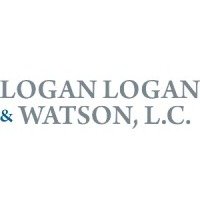Best Sanctions & Export Controls Lawyers in Prairie Village
Share your needs with us, get contacted by law firms.
Free. Takes 2 min.
List of the best lawyers in Prairie Village, United States
About Sanctions & Export Controls Law in Prairie Village, United States
Sanctions and export controls law governs the legal restrictions imposed on transactions, trade, and sharing of technology, goods, or services with foreign countries, entities, or individuals. In Prairie Village, Kansas, these laws are influenced by federal regulations administered by U.S. agencies, including the Office of Foreign Assets Control (OFAC) and the Bureau of Industry and Security (BIS). They impact businesses, individuals, and organizations that export goods, technology, or services from the United States or engage in international transactions. Prairie Village, as part of the Kansas City metropolitan area, is home to businesses and professionals who must stay compliant with these laws to avoid significant penalties.
Why You May Need a Lawyer
There are several reasons why individuals and businesses in Prairie Village may need legal assistance relating to sanctions and export controls. Authorities enforce these laws strictly, and violations can result in heavy fines, the loss of export privileges, reputational harm, and even criminal prosecution. Common situations where legal help is necessary include:
- Exporting products, software, or technology to international clients.
- Doing business with foreign entities or individuals who may be subject to U.S. sanctions.
- Questions about licensing requirements for certain items or destinations.
- Understanding screening and due diligence obligations.
- Responding to government investigations or enforcement actions.
- Implementing internal compliance programs in your business.
- Navigating mergers or acquisitions involving foreign elements.
- Dealing with blocked funds or assets due to sanction regulations.
- Travel restrictions or personal involvement in international projects.
Local Laws Overview
Prairie Village falls under federal jurisdiction for sanctions and export controls, as Kansas does not have unique state-specific export control laws. Key legal frameworks include the Export Administration Regulations (EAR), International Traffic in Arms Regulations (ITAR), and various OFAC sanctions programs. However, local businesses must still comply with federal law, and law enforcement or customs officials in Kansas can assist in enforcing these rules. Businesses and residents in Prairie Village must ensure exports and international engagements adhere to licensing requirements, that goods or technology are not shipped to embargoed countries or prohibited end users, and that they follow recordkeeping and reporting mandates. Legal counsel experienced in both federal regulations and local business practices can help bridge compliance gaps and manage risks.
Frequently Asked Questions
What are U.S. sanctions and how do they apply in Prairie Village?
U.S. sanctions are legal restrictions that limit trade and transactions with specific countries, entities, or individuals. These restrictions apply to everyone in Prairie Village, regardless of the size or industry of the business.
Do small businesses in Prairie Village need to worry about export controls?
Yes, even small businesses are subject to export control laws if they ship products, provide technology, or offer services to international customers or partners.
How do I know if my product is subject to export controls?
Most items are assigned an Export Control Classification Number (ECCN) under the EAR or ITAR. A lawyer can assist in classifying your product and determining requirements.
What are common penalties for violating sanctions and export controls?
Penalties may include hefty civil fines, criminal charges, loss of export privileges, and reputational damage.
How do I check if a foreign partner is on a restricted list?
OFAC and BIS maintain online lists of sanctioned or restricted entities. Checking these lists is essential before conducting business internationally.
Can export control laws affect hiring foreign employees?
Yes, sharing certain controlled technology or information with foreign nationals, even within the United States, is considered a "deemed export" and may require licenses.
Are there exceptions for humanitarian shipments or services?
Some sanctions programs allow for humanitarian exceptions, but these are narrowly defined and often require a license or strict compliance with terms.
How do I apply for an export license?
Export licenses are obtained by applying to the relevant agency, typically BIS or the State Department, depending on the item or service. Legal guidance can streamline this process.
What if I receive a government inquiry or subpoena related to exports?
You should immediately consult with a sanctions and export controls lawyer to ensure your rights are protected and to respond properly.
How can I create an effective export compliance program?
Work with a legal professional to assess your business exposure, develop policies, conduct employee training, and establish review and reporting procedures.
Additional Resources
If you are seeking further guidance, the following resources may be valuable:
- U.S. Department of Commerce - Bureau of Industry and Security (BIS)
- U.S. Department of Treasury - Office of Foreign Assets Control (OFAC)
- U.S. Department of State - Directorate of Defense Trade Controls (DDTC)
- Export.gov, for comprehensive export guidance
- Kansas District Export Council for local support and education
- Kansas Department of Commerce International Division for state-level assistance
- Locate a local business attorney with expertise in sanctions and export controls for tailored advice
Next Steps
If you believe you or your business may be impacted by sanctions or export controls, it is important to act promptly. Start by documenting your current international activities and identifying any products, services, or information that is exported or shared with foreign persons or entities. Consult with an attorney who specializes in this area of law to review your situation, assess risks, and determine your compliance obligations. A knowledgeable lawyer can help you navigate federal regulations, respond to enforcement actions, develop compliance programs, and apply for any needed licenses. Taking proactive measures can protect you from legal trouble and ensure your business operates smoothly in a global marketplace.
Lawzana helps you find the best lawyers and law firms in Prairie Village through a curated and pre-screened list of qualified legal professionals. Our platform offers rankings and detailed profiles of attorneys and law firms, allowing you to compare based on practice areas, including Sanctions & Export Controls, experience, and client feedback.
Each profile includes a description of the firm's areas of practice, client reviews, team members and partners, year of establishment, spoken languages, office locations, contact information, social media presence, and any published articles or resources. Most firms on our platform speak English and are experienced in both local and international legal matters.
Get a quote from top-rated law firms in Prairie Village, United States — quickly, securely, and without unnecessary hassle.
Disclaimer:
The information provided on this page is for general informational purposes only and does not constitute legal advice. While we strive to ensure the accuracy and relevance of the content, legal information may change over time, and interpretations of the law can vary. You should always consult with a qualified legal professional for advice specific to your situation.
We disclaim all liability for actions taken or not taken based on the content of this page. If you believe any information is incorrect or outdated, please contact us, and we will review and update it where appropriate.









